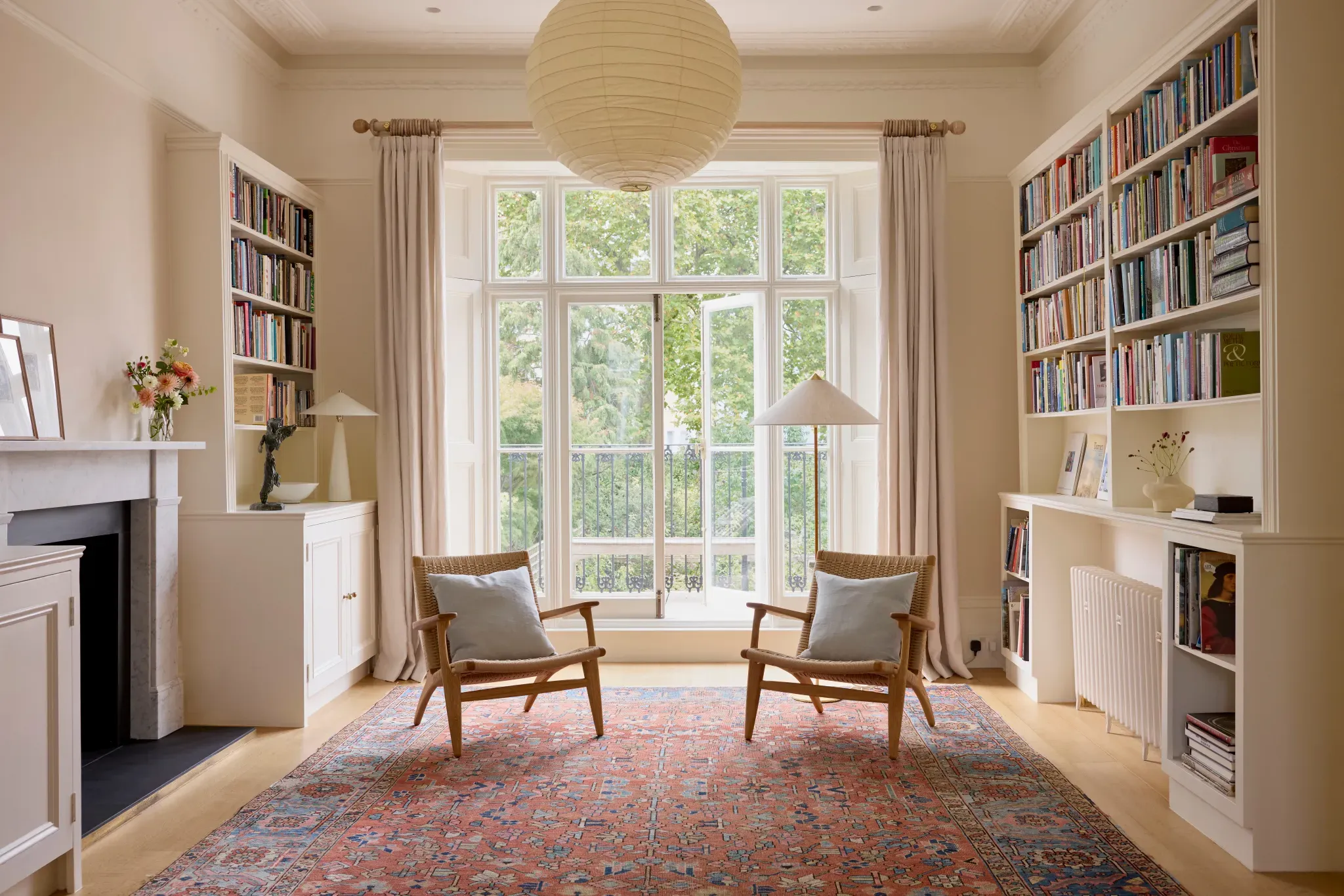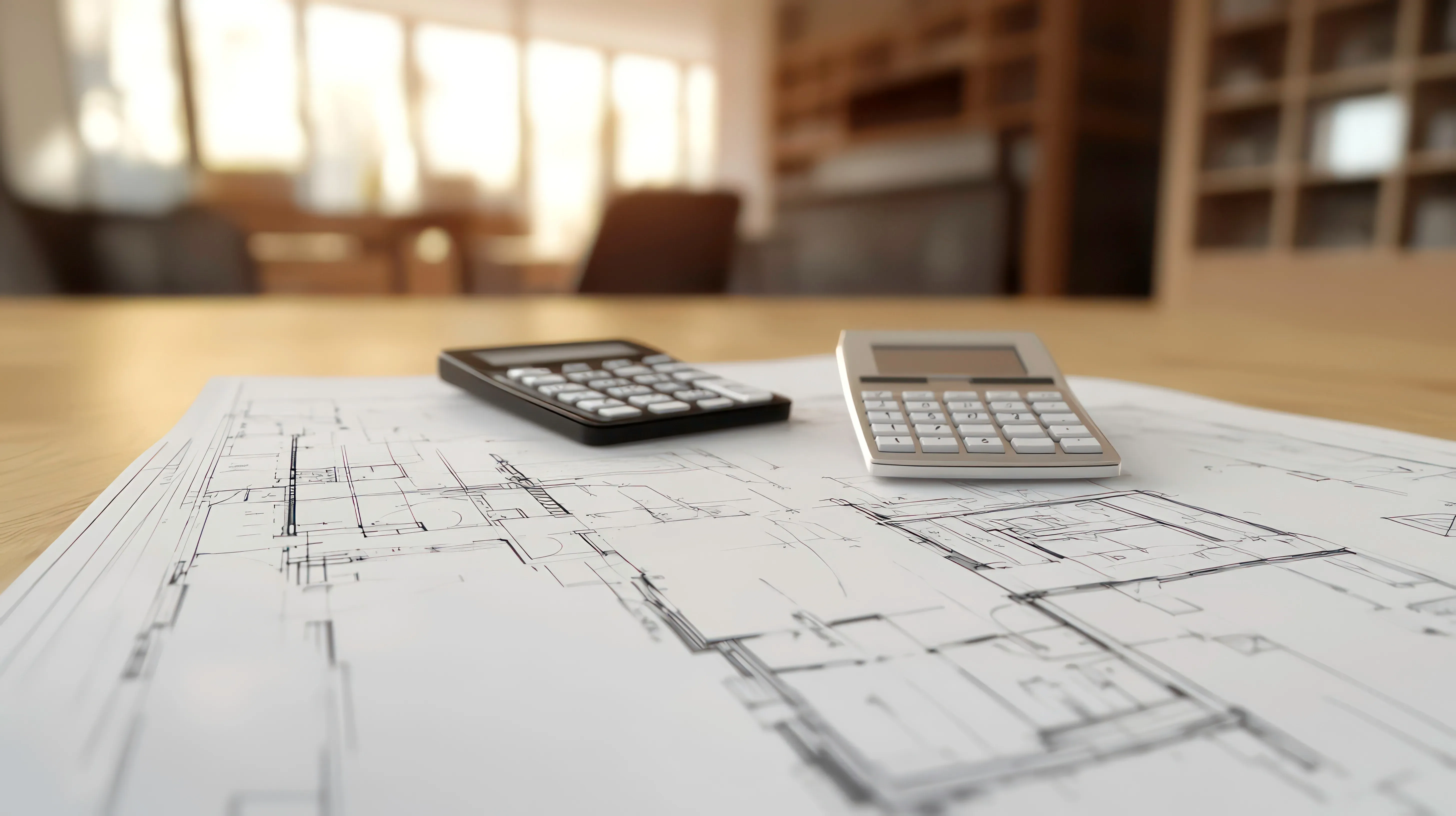New build vs renovation in the UK: Costs and more
You’ve probably Googled “how much to renovate a house UK” and “new build cost per m²” more times than you care to admit. You want solid numbers, real risks, and a path you can live with (literally).
Money, money, money , how much does it cost?
The cost of a renovation in the UK in 2025 typically ranges from roughly £1,200 to £2,800 per square metre, depending heavily on how much demolition, rerouting of services, structural work and finish you’re doing. A moderate full-house refurb might land closer to £1,700/m² as a benchmark.
On average new builds homes often cost in between £1,750 and £3,000 per m², though that’s very dependent on complexity, site conditions, and how bespoke your design gets. One of the biggest advantages of new build is VAT: a new home is zero-rated, while renovation is usually subject to 20% VAT (though energy-saving upgrades currently enjoy 0% VAT relief in certain cases).
Beams tip: Always build in a 10–15% contingency. Nothing eats your budget faster than discovering damp, misaligned walls, or surprise structural issues.
Factor | Renovation | New Build |
|---|---|---|
Average cost per m² | £1,200–£2,800 (typical refurb) | £1,750–£3,000 (varies by design/site) |
VAT | 20% | £0 |
Contingency advised | 10–15% (hidden damp, structural fixes, rewiring) | 5-10% |
Planning Permission | Somtimes not needed | Always needed |
Time | 3-9 months | 6-12 months |
Energy bill cost | Moderate (depends on retrofit quality) | Lower cost (built to future home standard) |
Resale Confidence | High for well-done period upgrades | High due to warranty + modern specs |
Planning, permissions & legal hurdles
In many cases, renovation is easier to get off the ground. Internal changes often fall under Permitted Development. But once you start touching roofs, changing facades in conservation areas, or adding floors, you’ll need full planning.
For a new build, planning is unavoidable. You’ll typically need:
- Full planning permission for the new dwelling
- A demolition notice (or “prior approval” for removing existing structure)
- Potential contributions via Community Infrastructure Levy (CIL) unless an exemption applies
- Compliance with current building regulations from scratch
Having a strong architect and early planning advice is essential. Go in blind and you’ll hit delays, objections or extra costs.
.jpg&w=3840&q=100)
- Image source: Houzz, Modern new build home, Sutton Coldfield, UK
Houzz.fr
How long it actually takes
Renovation: If you're lucky and all goes smoothly, you might finish in 3 months for a lighter job. For heavier structural, services or full-house work, expect 6–9 months, and possibly more if you’re still living there during work.
New build: Once you have permission and contracts, breaking ground usually leads to 6–12 months on site. Prefab systems can shorten this, but bespoke masonry builds or tricky terrain will stretch time.
Beams tip: When a builder says “6 months,” mentally add at least 30% extra. Delays are the norm, not the exception.
Energy, carbon & lifetime costs
One of the arguments in favour of renovation is embodied carbon: by retaining walls, floors and structure, you avoid the carbon cost of tearing down and re-materialising. If you insulate well, install modern heating, airtightness and energy systems, you can get very efficient performance out of an old shell.
But new builds have the advantage of starting clean. They are designed to meet or exceed the Future Homes Standard, with airtight envelopes, low thermal bridging and often provision for renewables built in. Day-to-day bills will usually favour the new build — just remember that demolition isn’t free in carbon or cost.

Warranty, resale & buyer confidence
New homes almost always come with a 10-year structural warranty (NHBC Buildmark or equivalent), which boosts buyer confidence and smooths lending. That peace-of-mind factor is one of the less glamorous but real benefits.
Renovated homes don’t come with that by default, though you can purchase structural warranties. But a beautifully renovated period home, done with integrity, can carry immense appeal in the market. Character, charm, clever use of heritage — that sells.
Frequently asked questions on new builds vs renovating
What’s more cost-effective: renovating or building new?
It depends. A light renovation (keeping layout, minimal rework) can be cheaper. But when you strip out structure, reroute everything and try to get to modern standards, a new build often narrows the gap.
Do new builds save on VAT?
Yes. New builds (as new dwellings) are zero-rated for VAT, unlike renovations which usually incur 20% VAT. Plus, self-builders can reclaim VAT on certain materials if they meet HMRC rules.
How much disruption will there be?
Renovations often allow you to stay in the home with parts sectioned off, but expect dust, noise and some inconveniences. With new build, most people move out or decamp for the duration — safer, cleaner, more predictable.
Do new builds always increase resale value more?
Not automatically. A smart renovation in the right area can boost value as much or more if the workmanship, design and appeal are top-tier. But new builds with warranties and modern specs often appeal strongly to buyers who want “nothing to do.”
How do I decide which route to take?
Start with: how good is the existing structure? What’s your budget ceiling? What’s the planning environment like where you are? Then run both options side by side with costs, timeline, carbon footprint and disruption weighed.
Ready to start your project?

Why renovate your home? Increase property value, improve energy efficiency, enhance living space. Discover 10 compelling reasons to start your renovation project.

Avoid budget surprises. Hidden renovation costs including VAT, skip hire, structural issues, planning fees. How Beams fixed pricing protects you from unexpected expenses.

Kitchen renovation costs in the UK for 2025, covering layout, appliances, worktops and flooring, plus what drives prices and how to plan well.

How much will my renovation cost in the UK in 2025? Understand average prices, what they involve, and tips to plan your project with confidence.

Learn how Beams calculates your renovation estimate using real UK project data. See how construction lines, materials choices and your room scope shape a clear, realistic budget that updates in real time as your plans evolve.